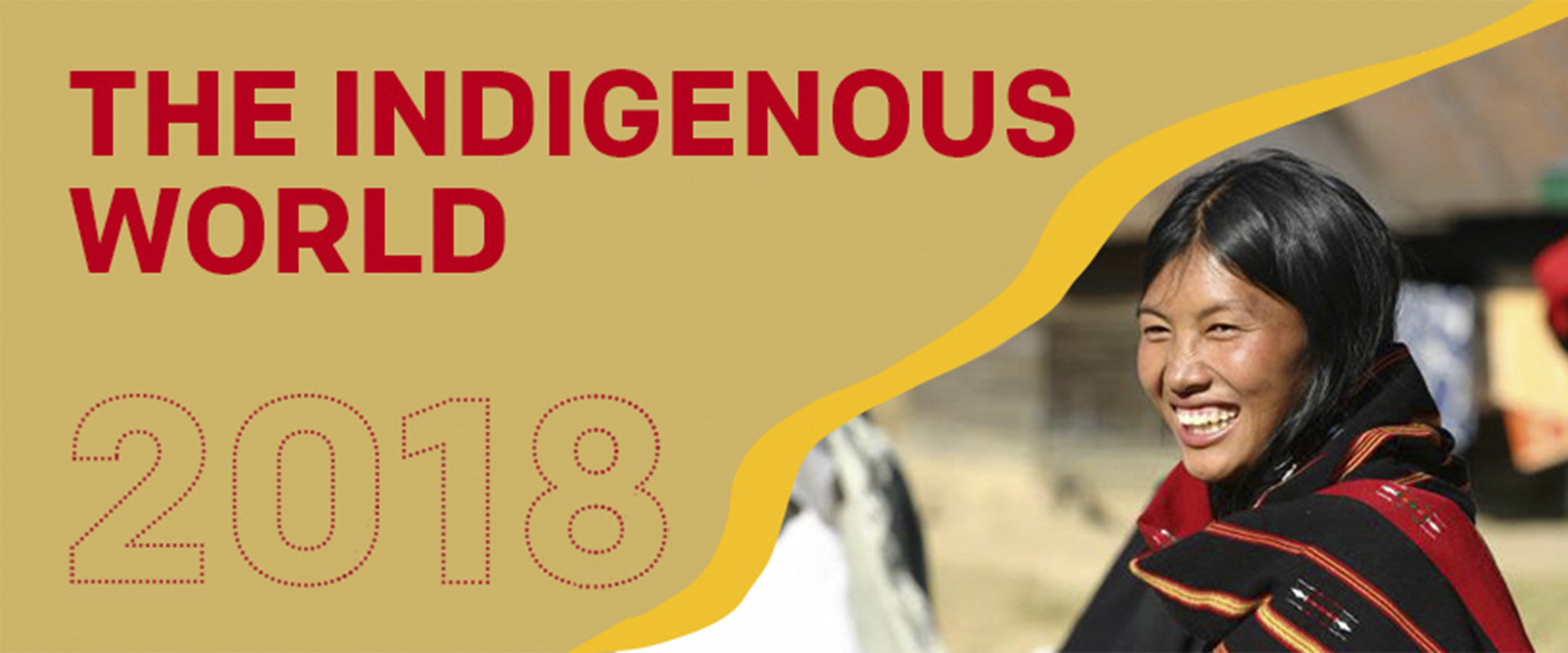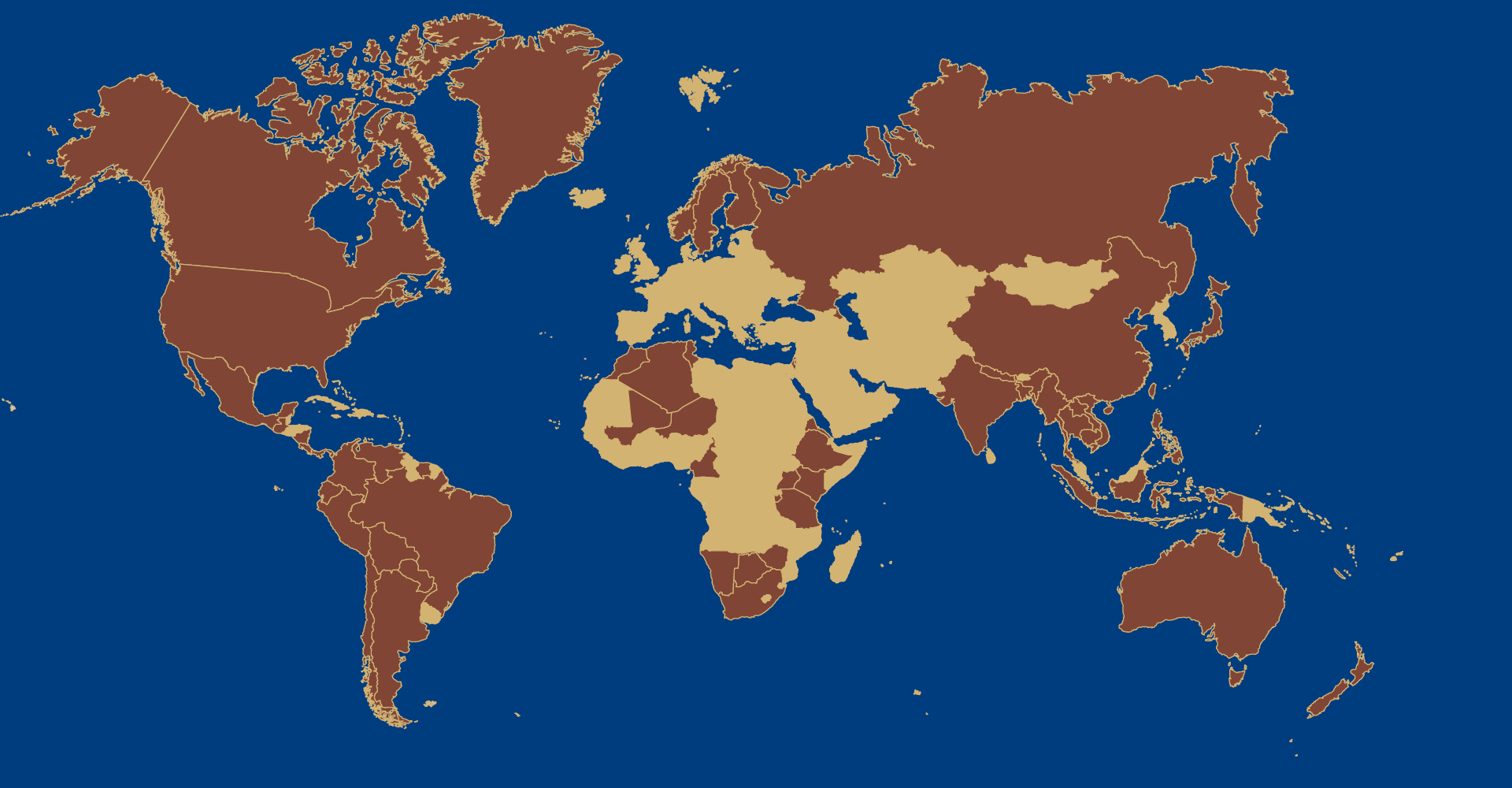10 achievements worth celebrating in The Indigenous World

Some encouraging developments in The Indigenous World 2018 show that the indigenous movement has placed itself at the core of a paradigm shift, pushing for a more inclusive and sustainable development. Indigenous peoples, in partnership with civil society and other human rights defenders, have strengthened their resilience on all fronts, increased their capacity to advocate for their demands and to lead a global wake-up call to respect and abide by indigenous traditional knowledge and worldviews.
These are the achievements worth celebrating in The Indigenous World 2018 - you can also download the book for free here >>
Indigenous autonomous governments moving forward
In Bolivia, 36 indigenous territories have started the procedure to become autonomous governments in a country where 21% of the land is collectively owned by indigenous peoples. These game-changing autonomous processes are also strong in Peru, where the Autonomous Territorial Government of the Wampis Nation (GTANW), established in 2015, is working on guidelines and roadmaps aimed at re-establishing their own institutional structures and attaining better conditions for a dialogue with the Peruvian State. Other indigenous communities such as the Shawi, Kandozi and Shapra in the Peruvian Amazon have also expressed their desire to establish an autonomous government to represent them as a people.
New consultation mechanism in Costa Rica
Significant progress has been made in Costa Rica in establishing an indigenous consultation mechanism, which will be discussed in 2018. The mechanism is described as promising because it takes into consideration the fact that each indigenous people takes its own decisions differently and that different issues require different consultation procedures.
Stronger participation of indigenous women in politics
In an unprecedented move, Mexico witnessed the first candidacy of an indigenous woman for the presidency in 2017. Her nomination still requires the support of 1% of the electoral roll to run, in the face of discrediting campaigns and personal attacks. Against all odds, in Kenya,indigenous women performed impressively in the general elections, with five indigenous women elected. This signals a shift towards more inclusive competitive political contests in the country.
Australia: water rights and more media exposure
In the Pacific region, through the support of non-indigenous allies and Reconciliation Action Plans, Australian media has increased its coverage from an Aboriginal and Torres Strait Islander perspective. In 2017, indigenous peoples’ water rights were at the centre of the debate. As more Australian land is handed back to its traditional owners through Native Title, water management policy is gaining a place at the policy-making table.

Inuit in Canada win historic court victory
The Inuit in Canada won a historic Supreme Court victory in June 2017 when a unanimous decision overturned Petroleum Geo-Services Inc.’s plans to collect more than 16,000 km of seismic data in their search for oil. Inuit are also awaiting new national indigenous language legislation, which Prime Minister Trudeau has announced will be developed in partnership with indigenous peoples.
Good practices to look at in Taiwan
Following a national apology to indigenous peoples, Taiwan moved forward in setting up the “Indigenous Historic Justice and Transitional Justice Committee” composed of representatives from the 16 indigenous groups and three from the Pingpu groups. Besides strengthening transitional justice, Taiwan’s Parliament addressed the impact of extractive industries by amending the Mining Act. The law amendment proposed would require more stringent impact assessments, stricter monitoring and a suspension of the operating license if serious violations are found. What is more, the Council of Indigenous Peoples (CIP) announced guidelines on the delineation of traditional indigenous territories, with the participation and consultation of 800 indigenous peoples.
Indigenous journalists at the United Nations
At the United Nations, 2017 was an exciting year for the UN Permanent Forum on Indigenous Issues, which welcomed 12 new experts and held the first-ever Indigenous Media Zone. This space proved to be a driver in improving information flows on indigenous peoples’ issues and a vital meeting point for different opinion makers, editors and journalists covering indigenous peoples’ issues.
“Nothing about us without us”
The increasing emergence of platforms for dialogue in which high-profile indigenous leaders play an active role in decision-making was remarkable in 2017, especially in the area of climate action. Among the 31 decisions taken at COP23 was one of key significance for indigenous peoples: the decision on the operationalisation of the Local Communities and Indigenous Peoples’ Knowledge-Sharing Platform (LCIP). This platform was lauded by many as a step forward in enhancing indigenous peoples’ engagement in the United Nations Framework Convention on Climate Change (UNFCCC) processes.
Environmental human rights protection gains momentum
The outbreak of violence against indigenous human rights defenders documented in this book is, however, also met with policy changes aimed at improving the safety of environmental defenders. As this edition goes to press, the United Nations Environment Programme (UNEP) is launching a new policy for the protection of environmental defenders. In Latin America, where most land rights defenders are killed, States are moving towards a regional agreement specifically targeted at protecting environmental defenders. This shows that environmental demands, including indigenous peoples’ claims, are finding their way into the development of systemic responses.Formally recognising the right to a healthy environment would contribute to protecting those who are increasingly putting their lives at risk to defend natural ecosystems.
Read more about why indigenous peoples land rights are at the center of the sustainable development paradigm here >>
Tags: Land rights, Global governance


